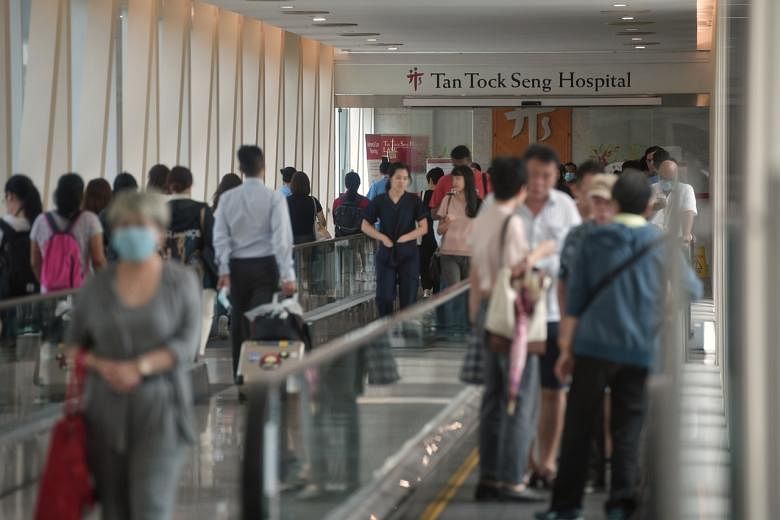Singapore will have to reconsider its strategy if the number of coronavirus cases continues to grow, said Prime Minister Lee Hsien Loong yesterday.
"If the virus is widespread, it is futile to try to trace every contact. If we still hospitalise and isolate every suspect case, our hospitals will be overwhelmed," he said in a statement on the outbreak.
"At that point, provided that the fatality rate stays low like flu, we should shift our approach."
In such circumstances, those who have only mild symptoms should see a general practitioner and rest at home instead of going to the hospital, Mr Lee said.
Hospitals and healthcare workers will then be able to focus on the most vulnerable patients - the elderly, young children and those with medical complications.
"We are not at that point yet," PM Lee added. "It may or may not happen, but we are thinking ahead and anticipating the next few steps. And I am sharing these possibilities with you, so that we are all mentally prepared for what may come."
Outside the epicentre of China's Hubei province, the death rate for the new virus has stood at 0.2 per cent so far.
In comparison, seasonal influenza has a death rate of 0.1 per cent, while that of the severe acute respiratory syndrome (Sars) virus is around 10 per cent.
"So in terms of mortality, the new virus is much closer to influenza than Sars," PM Lee said.
Last Friday, Singapore raised its disease outbreak alert level to orange, meaning that the outbreak is deemed to have moderate to high public health impact.
It is an acknowledgement that there is local spread, with a possibility that the disease may spread even more widely across the country. But in spite of the increased spread, the situation is still considered to be under control.
"In the last few days, we have seen some cases which cannot be traced to the source of infection. These worried us, because it showed that the virus is probably already circulating in our own population," PM Lee said.
He added that this is why the outbreak alert level has been raised to orange and the Government is stepping up measures.
These include reducing mingling in schools, tightening access to hospitals, and taking extra precautions at large public events.
The last time the outbreak alert status was raised to orange was in 2009, for the H1N1 swine flu outbreak.
"So there is no need to panic. We are not locking down the city or confining everybody to stay at home. We have ample supplies, so there is no need to stock up with instant noodles, tinned food or toilet paper, as some people did yesterday," PM Lee added, referring to Friday.
Professor David Heymann of the London School of Hygiene and Tropical Medicine, who headed the World Health Organisation's global response to Sars in 2003, said that much is unknown about the disease. For instance, the current understanding of the virus' mortality rate is "skewed" because until recently, China was looking only at people with pneumonia.
However, many more probably have the disease in a milder form, so the base number of patients could be much larger, he said.
The experts are also still unclear about how transmissible the virus is, Prof Heymann said, adding that there is no lifelong immunity for coronavirus infections.
• Additional reporting by Salma Khalik












